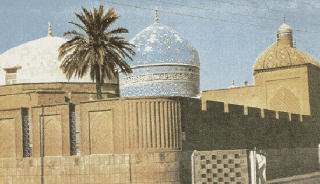Gold use Jewelry. Investment. Medicine .Food and drink

History Gold has been known and used by artisans since the Chalcolithic. Gold artifacts in the Balkans appear from the 4th millennium BC, such as that found in the Varna Necropolis. Gold artifacts such as the golden hats and the Nebra disk appeared in Central Europe from the 2nd millennium BC Bronze Age. Egyptian hieroglyphs from as early as 2600 BC describe gold, which king Tushratta of the Mitanni claimed was "more plentiful than dirt" in Egypt. Egypt and especially Nubia had the resources to make them major gold-producing areas for much of history. The earliest known map is known as the Turin Papyrus Map and shows the plan of a gold mine in Nubia together with indications of the local geology. The primitive working methods are described by both Strabo and Diodorus Siculus, and included fire-setting. Large mines were also present across the Red Sea in what is now Saudi Arabia. The legend of the golden fleece may refer to the use of fleeces to trap gold du...




